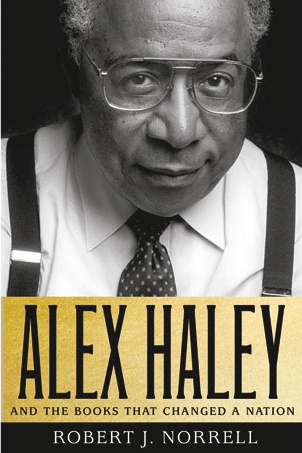on
-
AUGUST 9
1936—Sprinting sensation Jesse Owens wins a total of four Gold Medals at the Olympics in Berlin, Germany. Born in Lawrence County, Ala., Owens gained international fame for his victories in the 100 meters, the 200 meters, the long jump and the 4?100 meter relay. His victories undermined Adolph Hitler’s claims of White, especially German, superiority over all other peoples. However, Owens disputed claims that the Nazi leader was so infuriated with him that he refused to shake his hand. According to Owens, during his only encounter with Hitler, “the Chancellor waved and I waved back.” The pack-a-day cigarette smoker died at the relatively young age of 66 on March 31, 1980.

1963—Whitney Houston, one of the greatest singers of the past 50 years, was born on this day in Newark, N.J. Whitney Elizabeth Houston was born into a family of accomplished singers. Her mother was Thelma Houston—an excellent gospel and R&B performer and her cousin was song stylist Dionne Warwick. During her heyday in the 1980s, Houston sold approximately 170 million albums including such hits as “You Give Good Love,” “Saving All My Love for You,” “How Will I Know?” and “The Greatest Love of All.” The singer was found dead in the bathtub of her Beverly Hilton Hotel room on Feb. 11, 2012, hours before a pre-Grammy party. She was 48.

1987—Lawyer and entrepreneur Reginald Lewis completes the largest business acquisition ever accomplished by an African American when he purchases Beatrice Foods in a leveraged buyout for $985 million. Under his leadership, the firm would soon become the first Black-owned company to achieve more than $1 billion in annual sales. Lewis made the Forbes magazine list of the 400 richest Americans in 1992 with an estimated net worth of $400 million. Unfortunately, the Baltimore, Md., native would die of brain cancer at the age of 50 on Jan. 19, 1993. His contribution to telling Blacks how to achieve economic success came in his book entitled “Why Should White Guys Have All the Fun?”
-
AUGUST 10
1867—Famed Black Shakespearean actor Ira Aldridge dies in Poland. Aldridge was born in New York, where he developed a love for the theater. But prejudice in America forced him to go to England to practice his craft. Despite running into racism there as well, he was able to find work. He came in for harsh criticism when paired with White female actresses. But after performing Shakespeare’s Othello, he was proclaimed “an actor of genius” by several newspapers. (Note: There is some authority that Aldridge actually died on Aug. 7.)
1981—A nationwide African American boycott of the giant Coca Cola bottling company ends after the firm reaches an agreement with Rev. Jesse Jackson’s Operation PUSH. Coke agreed to pump at least $34 million into Black businesses and increase the number of African American-owned distributorships. Critics would later charge that the beverage giant reneged on the deal and the amount of money pumped into Black businesses never came to more than $11 million.
-
AUGUST 11
1868—One of the greatest White heroes of Black history dies in Washington, D.C. His name was Thaddeus Stevens. Stevens, a congressman from Pennsylvania, and Sen. Charles Sumner, of Massachusetts, led the Radical Republicans movement, which favored punishing the South for starting the Civil War and taking land from the former slave owners and giving it to the former slaves. He headed the powerful House Ways and Means Committee and he used his power at every turn to aid Blacks. Indeed, many of the pro-Black measures and legislation of the period attributed to President Abraham Lincoln were actually initiated by Stevens and Sumner. After Lincoln’s assassination, Stevens led the move to impeach President Andrew Johnson in part because Johnson, a Southerner, opposed many measures which would have benefited Blacks. More than 20,000 people (nearly half of them Black) attended his funeral in Lancaster, Pa.

1921—Accomplished writer Alex Haley is born on this day in Ithaca, N.Y. Haley is best known for co-writing the “Autobiography of Malcolm X” and for “Roots”—a history of a Black family during slavery, which became a major television series during the 1970s. Haley died in February 1992.
1965—The largest, longest and possibly most destructive Black riot of the turbulent 1960s begins in Los Angeles, Calif. The Watts Rebellion lasted six days, caused between $35 million and $50 million in damage while leaving 34 people dead, more than 1,000 injured and nearly 4,000 arrested. It took place during a “long hot summer” when similar riots were taking place throughout the country.
-
AUGUST 12
1890—This is generally considered the day that the systematic and nominally legal exclusion of Blacks from the political life of the South began. It was the day that the Mississippi Constitutional Convention began. Barred by the 14th and 15th Amendments to the U.S. Constitution from excluding Blacks by race, the convention instead adopted a host of strategies including literacy or so-called “Education Tests” specifically designed to prevent Blacks from voting. The tests required reading and interpreting the Constitution. Blacks would be given difficult passages to interpret while Whites were either exempted or given easy passages. Soon, most Southern states adopted the so-called Mississippi Plan to exclude Blacks from voting. The racist plan was effective. In one Mississippi County, for example, there were 30,000 Blacks but only 175 were eligible to vote. Most aspects of the Mississippi Plan were not overturned until the Civil Rights Movement of the 1960s.

1922—Ophelia Devore Mitchell—the founding mother of African American modeling—is born on this day in Edgefield, S.C. Her family would move to New York during the 1930s, where she entered the Vogue School of Modeling at 17. She excelled at modeling, as well as in academics mastering Latin, German and French. She modeled professionally for several years before opening her own modeling school in 1946. Her aim was to overcome stereotypes and negative portrayals of Black women. She wrote a fashion column for the Pittsburgh Courier, started her own line of cosmetics and eventually helped found the Columbus Times newspaper in Georgia. In 2004, she was formally recognized by the Fashion Institute of Technology and the Fashion and Arts Exchange for her contributions to the industry.
-
AUGUST 13
1881—The first African American nursing school opens at Spelman College in Atlanta, Ga.
1892—The Afro-American newspaper is founded. The first edition is published in Baltimore, Md., by John H. Murphy Sr. At its height, the newspaper chain would publish papers in Baltimore, Washington, D.C., Philadelphia, Richmond, Virginia and Newark, N.J. It continues to publish today in Baltimore and Washington, D.C.
1906—The “Brownsville Affair” takes place. Angry Black soldiers, who had been subjected to intense racial discrimination and insults, are accused of sneaking into Brownsville, Texas, and killing a local White bartender and wounding a police officer. Although the evidence was weak, President Theodore Roosevelt sided with Brownsville Whites and ordered 167 of the Black soldiers dishonorably discharged for a “conspiracy of silence” because they either denied involvement in the shootings or refused to say who was involved. However, 66 years later (as a result of the findings of a book) the Army opened a new investigation which cleared the accused soldiers and reversed the 1906 dishonorably discharges.
-
AUGUST 14
1862—President Abraham Lincoln (for the first time) meets with a group of prominent Blacks to discuss the Civil War and public policy. But before the meeting was over, he would anger those gathered. Although an outspoken opponent of the expansion of slavery, Lincoln suggested that it would be best for America and Blacks if African Americans were to emigrate to Africa or Central America. Nevertheless, a little more than a month later on Sept. 22 he would issue the Emancipation Proclamation technically freeing all slaves in the rebellious Southern states.
1883—Ernest E. Just is born in Charleston, S.C. Just would become one of the nation’s most prominent biologists conducting pioneering research in cell division. He graduated Magna Cum Laude from Dartmouth University in 1907 and would go on to establish the Zoology Department at Howard University in Washington, D.C. Just would die in 1941.

1959—Modern basketball legend Earvin “Magic” Johnson is born on this day in Lansing, Mich.
-
AUGUST 15
1975—In another of those highly publicized “trials of the century,” which frequently grip national attention, 20-year-old Joan Little is found not guilty of murder after she stabbed a White jailer who had entered her cell in Beaufort County, N.C., to sexually assault her. The trial had been moved to Raleigh because of widespread racial prejudice in the Eastern North Carolina area where the incident actually took place.
1979—President Jimmy Carter forces the resignation of United Nations Ambassador Andrew Young after he angered Jewish groups by meeting with representatives of the Palestine Liberation Organization. The resignation created stormy relations between Blacks and the generally uncompromising pro-Israel lobby in the United States.
Join our email list to stay connected.






